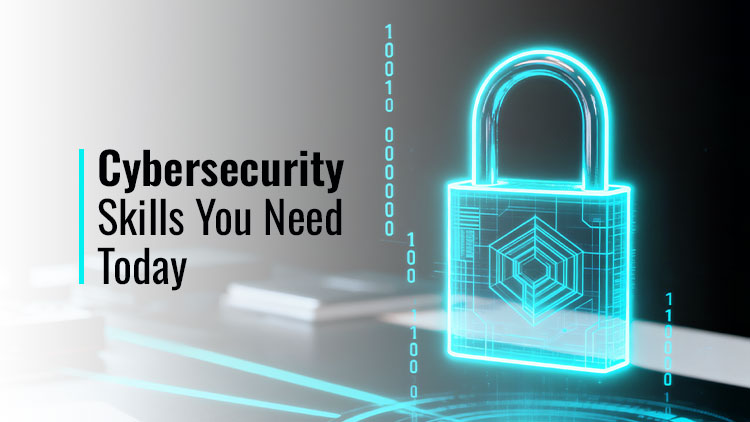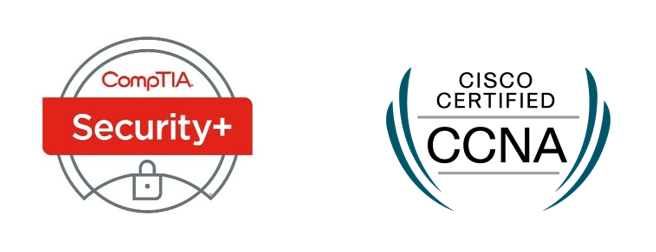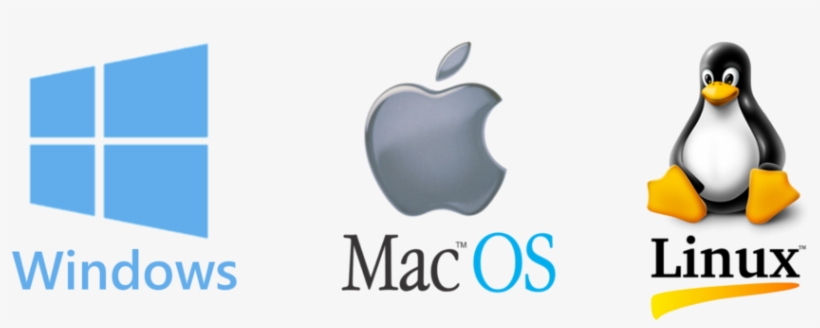
Cybersecurity Skills You Need Today

Introduction
In today’s digital age, organizations from all industries rely largely on technology to handle data, operations, and communication. While connectivity promotes innovation and efficiency, it also exposes organizations to a growing number of cyber threats. Each online transaction, remote connection, and cloud-based system exposes potential weaknesses for malicious actors to exploit.
Cybersecurity knowledge has thus become critical for guaranteeing company continuity and protecting sensitive data. However, many smaller firms continue to struggle to develop effective protection against these risks, leaving them vulnerable to costly breaches. When IT teams and technology leaders understand the value of having strong cybersecurity capabilities, they can build resilient systems, reduce vulnerabilities, and increase consumer trust in a competitive digital economy.
VERSAtile Reads offers comprehensive cybersecurity study exam prep resources in terms of exam cram notes and practice questions designed to help learners build in-demand skills, deepen their understanding, and grow confidently in today’s technology-driven world.
Essential Skills for a Successful Cybersecurity Career
If you’ve ever wondered if cybersecurity is a viable career path, the answer is definitely yes. It is a field that offers long-term stability, competitive compensation, and a variety of opportunities for advancement across industries. With businesses increasingly operating online and implementing cloud-based solutions, the demand for cybersecurity expertise has reached new heights. This increased reliance on digital systems has created a high demand for skilled professionals capable of protecting critical information and ensuring data integrity.
However, success in this domain necessitates a balance of technical proficiency and interpersonal competence. A capable cybersecurity professional must develop a diverse and adaptable skill set that includes knowledge of networking, programming, cloud security, and security tools, as well as soft skills like clear communication, analytical thinking, adaptability, and attention to detail. Together, these skills enable professionals to safeguard digital environments and thrive in an ever-changing technological landscape.
Network and System Management
A thorough understanding of networking forms the foundation of a successful cybersecurity career. It enables professionals to understand how data flows through systems, identify potential vulnerabilities, and create stronger defenses. Mastering these concepts develops a more focused technical mindset and lays the groundwork for effective protection strategies. Earning industry-recognized credentials, such as CompTIA Security+ or Cisco CCNA, can boost your credibility and lead to advanced opportunities in the field.

Developing system administration skills is also critical. This discipline specializes in configuring, managing, and maintaining computer systems to ensure stability and security. Cultivating a natural curiosity to investigate system features, experiment with configurations, and understand how each component works contributes to a stronger command of technology, which is an essential trait for any aspiring cybersecurity professional.
Operating Systems and Virtual Machines
A skilled cybersecurity professional must have extensive knowledge of multiple operating systems, including Windows, Linux, and macOS. Mastering these platforms ensures adaptability in a variety of environments, as well as improved detection and mitigation of security threats. Virtual machines are invaluable tools, allowing you to experiment, analyze, and improve your technical skills in a safe, isolated environment.

Among Linux distributions, Kali Linux is the leading platform for ethical hacking and penetration testing. It is well-known for its comprehensive suite of tools, which enable professionals to perform malware analysis, digital forensics, and security research with precision and efficiency, making it an essential component of any cybersecurity toolkit.
Network Security Control
Network security controls cover a wide range of strategies for protecting network infrastructure from internal and external threats. A thorough understanding of network operations, including the roles of routers, firewalls, and other security devices, is required to maintain a secure environment. Firewalls, whether hardware or software-based, act as the first line of defense, monitoring and filtering traffic to prevent unauthorized access and malicious activity.
Cybersecurity professionals must also be skilled at using Intrusion Detection and Prevention Systems (IDS/IPS), managing Virtual Private Networks (VPNs), and securing remote connections. For example, the ability to analyze IDS alerts and detect policy violations or suspicious network behavior is critical for effective threat management. Many professionals improve their credibility by obtaining certifications such as Certified Ethical Hacker (CEH). Before pursuing it, it is advisable to review the CEH certification cost to ensure that it is compatible with your career goals and budget.

Programming Knowledge
A lack of programming skills can severely limit career advancement in cybersecurity. Understanding how code works improves your ability to detect, analyze, and mitigate threats efficiently. Learning multiple programming languages gives you the tools you need to secure systems, analyze vulnerabilities, and respond quickly to attacks.
Every cybersecurity professional should learn the following important programming languages:
| Programming Language | Purpose in Cybersecurity |
| C and C++ | Low-level programming languages essential for cybersecurity professionals to understand system operations and vulnerabilities. |
| Python | A high-level language used by cyber experts to identify and fix security vulnerabilities. |
| JavaScript | Learning JavaScript can help you prevent Cross-Site Scripting (XSS) attacks. |
| PHP | Widely used in website development, learning it helps defend against online intrusions. |
| HTML | Commonly used in most websites and easy to learn, making it useful for understanding web structures. |
| Golang | Excellent for cryptography and resolving various cybersecurity issues. |
| SQL | Attackers frequently exploit this vulnerability to damage stored data; understanding it aids in the prevention of SQL injection attacks. |
| Assembly Language | Provides insight into how malware works, allowing better defense strategies. |
Cloud Security
As more organizations move their data and applications to the cloud, the demand for professionals who can secure these environments grows. Businesses are increasingly turning to public and hybrid cloud platforms such as AWS, Microsoft Azure, and Google Cloud to improve scalability and performance. To protect these systems, cybersecurity professionals must implement strong policies and advanced security measures that safeguard data, applications, and network resources.
Cloud security, like application security, emphasizes the importance of building protection into systems from the start. Professionals who can manage and secure large-scale cloud infrastructures are in high demand due to their ability to maintain compliance, ensure data integrity, and defend against emerging threats.
Sharpen Your Cybersecurity Skills
Enhance your cybersecurity skills with VERSAtile Reads’ trusted learning platform. It offers well-structured study materials to help you gain confidence in key areas such as networking, management, and cloud security. With VERSAtile Reads focused approach to professional development, you can improve your skills, stay up to date on industry standards, and get closer to achieving your cybersecurity career objectives.
Conclusion
A successful cybersecurity career requires more than just technical knowledge; it also requires continuous learning, adaptability, and a proactive mindset. As technology advances, so do cyber adversaries’ tactics, making it critical for professionals to stay current through upskilling and hands-on practice. Building strong foundations in networking, programming, operating systems, and cloud security enables individuals to confidently protect complex digital environments. By combining technical expertise with analytical thinking and clear communication, cybersecurity professionals not only defend systems but also help to shape a safer and more resilient digital future.
FAQs
Q1. What are the most important skills to start a career in cybersecurity?
A successful cybersecurity career begins with a solid understanding of networking, operating systems, and programming. Equally important are soft skills such as analytical thinking, problem-solving, and effective communication, which help professionals make sound security decisions.
Q2. Do you need programming knowledge to work in cybersecurity?
Yes, programming skills are highly beneficial. Knowing languages like Python, C/C++, and JavaScript helps you identify vulnerabilities, automate tasks, and analyze malicious code effectively. Even a basic understanding can significantly improve your problem-solving abilities.
Q3. Which certifications should you pursue to advance in cybersecurity?
Certifications such as CompTIA Security+, Cisco CCNA, and Certified Ethical Hacker (CEH) validate your technical skills and enhance employability. Each certification focuses on different areas of expertise, allowing you to specialize as you progress.
- Published Date:



